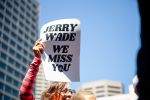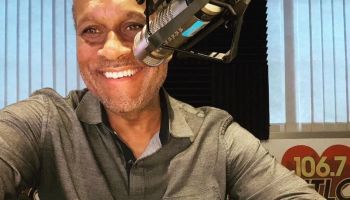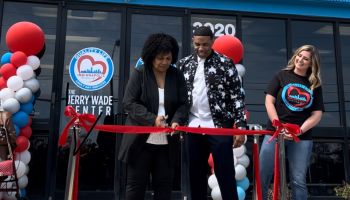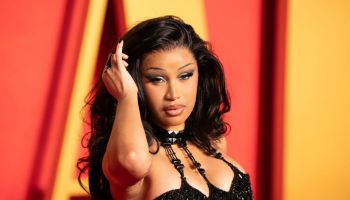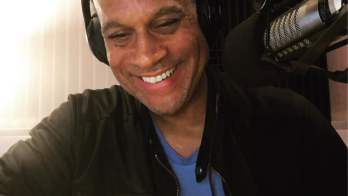Before it takes a hiatus, TV One’s extremely popular series “UnSung” takes an in-depth look at the talent and tragedies of Zapp and Roger on Sunday, November 22 at 8pm Eastern.
Actor Gary Anthony Williams narrates the one-hour documentary that chronicles the rise of the Dayton, Ohio hit makers who inspired a generation of hip hop icons from DJ Quik, Dr. Dre, Snoop Dogg and most recently T-Pain.
The Troutman brothers – Lester, Terry, Larry and Roger led the innovative group who raised the bar and popularized the voice/talk Box (vocoder) in their chart toppers “More Bounce to the Ounce,” “I Can Make You Dance,” “So Ruff So Tuff,” “Computer Love,” “I Wanna be Your Man” and many more.
The mark of something “classic” is when it serves as a standard or guide, taking on a timeless characteristic. Such is the heavily sampled music of Zapp, which has subsequently introduced the sound to a whole new generation – beginning with Dr. Dre’s and Tupac’s “California Love.”
We recently caught up with Lester and Terry Troutman for a stimulating conversation about the evolution of Zapp, which extends far beyond their music.
During the height of their popularity, the Troutmans put many low-income Dayton families into houses they built from the ground up. Testimonials to their commitment to uplift the local Dayton community are well documented in the episode.
Larry and Roger spearheaded much of Zapp’s business. They were the “go-to” guys. No one saw it coming when on April 25, 1999, Larry Troutman fatally shot his brother Roger and then turned the gun on himself.
A decade later, the Troutman family, their friends and colleagues have come together in this “UnSung” episode to share their story.
Featuring exclusive interviews, musical clips and archival footage, “UnSung” investigates their stories and the profound influence they have had on today’s music.
Lester admits that it was a long time coming:
“A producer came to interview my family … about 2000 or 2001 and then a year later to do a feature. He called and called.” Terry said that he felt “awkward” because the family tragedy was still too fresh.
No one ever really recovers from the loss of loved ones, but once they returned to work, Zapp seemed to put extra energy into performances.
“At first, it was too much grief. It was almost impossible to go back to doing shows. Once we got able to go back … it was positive and a pleasure,” said Lester.
The West Coast is known for its love of bass-heavy beats. Zapp was instrumental in throwing bass at the listeners when everybody else seemed to be going in a different direction … except for maybe George Clinton and Bootsy Collins.
“You just do what feels good… People want to dance and have a good time… All of the heavy bass was because of Roger – he loved bottom. And we were mimicking George and Bootsy, and getting into the studio with them as often as we could,” said Lester.
How did the idea of a voice/talk box (vocoder) come about?
“For the record, we know that when Jay-Z was talking about autotunes – he wasn’t talking about us!” both brothers chimed in, with a laugh.
“Ramsey Lewis and their guitar player had a talk box and it blew our mind. Roger perfected it,” said Terry. “During that time, Peter Frampton and Stevie Wonder were also experimenting with the new sounds…Thank God for Bootsey’s brother, Parliament and all the guys in the studio.”
According to http://www.eurweb.com
So, Zapp is back on tour and completing a new album. “We’ve been on stage most of our life… this is what we have always done. Before we made it big… we toured… we played in every state and we were a local band … that was way before we made a record … touring is second nature,” said Lester.
As a whole new generation embraces the resurgence of “old school” genius, we are reminded of those trailblazers whose music remains relevant.
Check your local cable listings for UnSung with Zapp and Roger, premiering on Sunday, November 22 on TV One.


